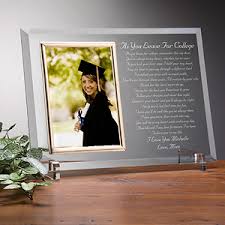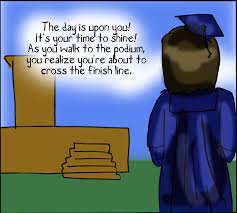Graduation Poems Biography
Source(google.com.pk)
On graduation day, parents and family often turn to poetry to express what they would like to pass on to the next generation—some small thought, a few lines of guidance, a gesture toward nostalgia, an elder’s wisdom. The familiar (and perhaps too familiar) standards include Robert Frost‘s poem, "The Road Not Taken," the Langston Hughes poem "Dreams," and Rudyard Kipling‘s poem "If—.” It is no surprise that contemporary poets have offered many strange and lovely alternatives to these well-known verses. Robert Creeley has a series of three beautiful poems written for his children’s graduations from Bolinas, from 1971-1973. In the first one, he writes:
This walking on
and on, this
going and coming—
this morning
shines such lovely
light on
all of us
we’re home.
The wisdom in this lyric is not purely in what it says, but how it is said; the circularity of life as Creeley sees it is built into the line breaks and rhythms, with each line propelled into the next. Yet, as he writes in the 1972 poem:
The honor
of being human
will stay constant.
When the Washington Post invited Rita Dove to select a poem for their “Poet’s Choice” feature, she remembered the occasion of her daughter’s graduation from college. Overwhelmed at the prospect of making a speech, she found the Billy Collins poem “Metamorphosis” to be a great comfort:
Ah, to awaken one morning as the New York Public Library.
I would pass the days observing old men in raincoats
as they mounted the ponderous steps between the lions
carrying wild and scribbled notes inside their pockets.
I would feel the pages of books turning inside me like butterflies.
I would stare over Fifth Avenue with a perfectly straight face.
What new graduate would not benefit from imagining that she could transform into the act of learning itself, becoming the library, as if the books she had read were already a part of her? Emily Dickinson noted that the most important lessons she ever learned were not in books:
I went to School
But was not wiser
Globe did not teach it
Nor Logarithm Show
“How to forget”!
E. E. Cummings takes on that very argument in his spirited, curmudgeonly poem, “yonder deadfromtheneckup graduate," in which he plays with the idiom “poeta nascitur, non fit” or “a poet is born, not made”:
yonder deadfromtheneckup graduate of a
somewhat obscure to be sure university spends
her time looking picturesque under
the as it happens quite
erroneous impression that he
nascitur
And, of course, graduation poems must include choices for teachers as well. Bill Knott imagines his students returning to see him in the poem “An Instructor’s Dream”:
Many decades after graduation
the students sneak back onto
the school-grounds at night
and within the pane-lit windows
catch me their teacher at the desk
or blackboard cradling a chalk:
someone has erased their youth
Here is a short list of poems—poems of advice, meditations on school days—for graduation day:
"All the World’s a Stage" by William Shakespeare
"Beyond the Years" by Paul Laurence Dunbar
"Dreams" by Langston Hughes
"First Gestures" by Julia Kasdorf
"Friends, I Will Not Cease" by Vachel Lindsay
"If—" by Rudyard Kipling
"Invictus" by William Ernest Henley
"Ithaka" by C. P. Cavafy
"Knows how to forget (433)" by Emily Dickinson
"My Heart Leaps Up" by William Wordsworth
"The Character of a Happy Life" by Sir Henry Wotton
"The Choir Invisible" by George Eliot
"The Road Not Taken" by Robert Frost
"The Writer" by Richard Wilbur
"Today We Make the Poet’s Words Our Own" by Henry Wadsworth Longfellow
"Up-Hill" by Christina Rossetti
“An Instructor’s Dream” by Bill Knott
“Metamorphosis” by Billy Collins
“For the Graduation, Bolinas, 1971” by Robert Creeley
“For the Graduation, Bolinas, 1972” by Robert Creeley
“For the Graduation, Bolinas, 1973” by Robert Creeley
“yonder deadfromtheneckup graduate” by E. E. Cummings
“What Fifty Said” by Robert Frost
“Lines on a Young Lady’s Photograph Album” by Philip Larkin
“Hanging Fire” by Audre Lorde
“Post-graduate” by Dorothy Parker
“Sense of Something Coming” by Rainer Marie Rilke
“Arithmetic” by Carl Sandburg
“The Truly Great” by Stephen Spender
“Among School Children” by W. B. Yeats
Graduation Poems Poems About Love For Kids About Life About Death About Friendship For Him About Family Tumblr For Her About Nature

Graduation Poems Poems About Love For Kids About Life About Death About Friendship For Him About Family Tumblr For Her About Nature

Graduation Poems Poems About Love For Kids About Life About Death About Friendship For Him About Family Tumblr For Her About Nature

Graduation Poems Poems About Love For Kids About Life About Death About Friendship For Him About Family Tumblr For Her About Nature

Graduation Poems Poems About Love For Kids About Life About Death About Friendship For Him About Family Tumblr For Her About Nature

Graduation Poems Poems About Love For Kids About Life About Death About Friendship For Him About Family Tumblr For Her About Nature


Graduation Poems Poems About Love For Kids About Life About Death About Friendship For Him About Family Tumblr For Her About Nature


Graduation Poems Poems About Love For Kids About Life About Death About Friendship For Him About Family Tumblr For Her About Nature


Graduation Poems Poems About Love For Kids About Life About Death About Friendship For Him About Family Tumblr For Her About Nature


Graduation Poems Poems About Love For Kids About Life About Death About Friendship For Him About Family Tumblr For Her About Nature


Graduation Poems Poems About Love For Kids About Life About Death About Friendship For Him About Family Tumblr For Her About Nature


Graduation Poems Poems About Love For Kids About Life About Death About Friendship For Him About Family Tumblr For Her About Nature


Graduation Poems Poems About Love For Kids About Life About Death About Friendship For Him About Family Tumblr For Her About Nature


No comments:
Post a Comment